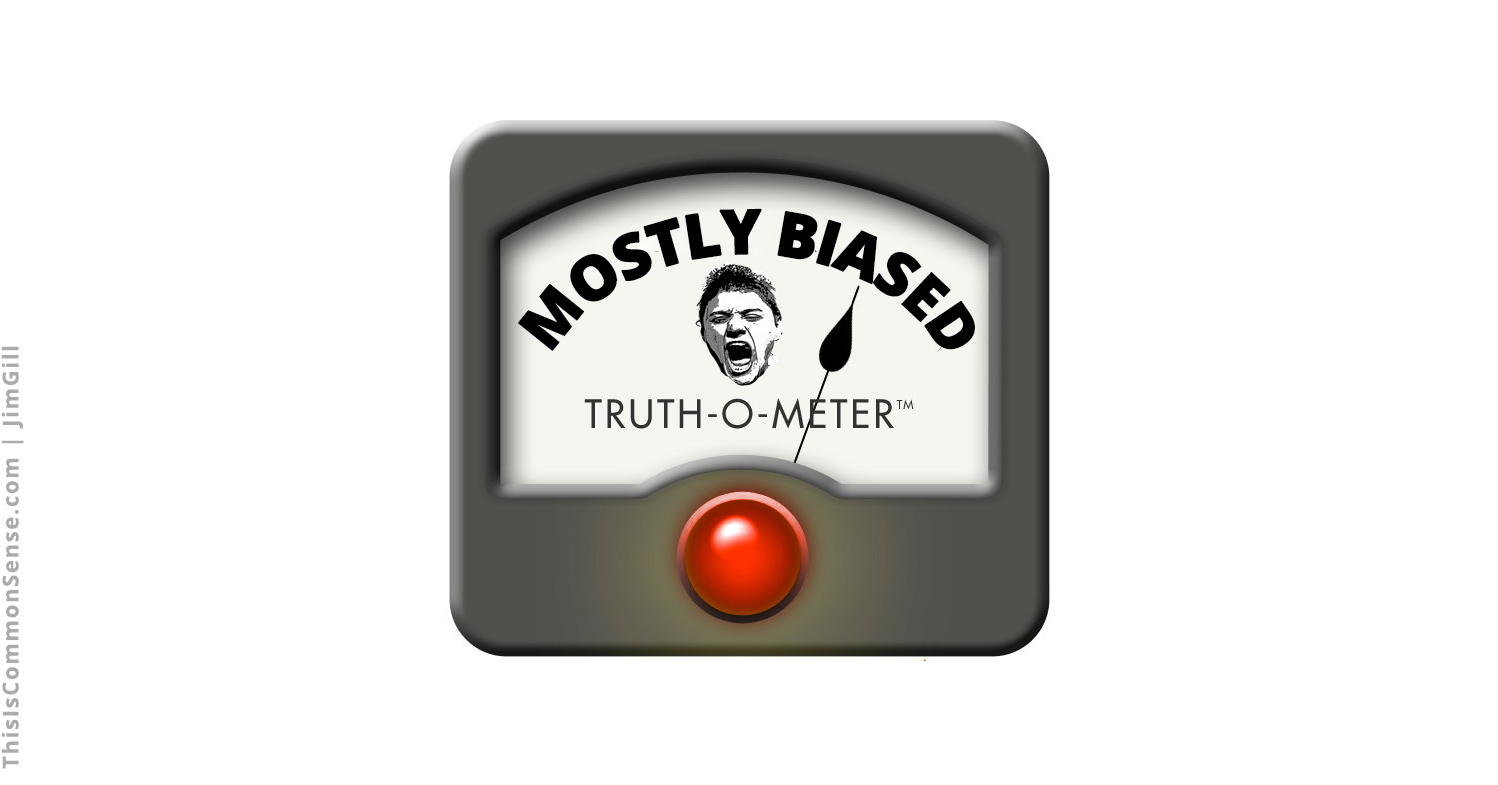The popular fact-checking sites, such as Snopes and Politifact, cannot stick to the facts.
When Sen. Rand Paul (R‑Ky) predicted that a recent repeal of “three regulations” would save “hundreds of millions of dollars and tens of thousands of jobs,” Politifact rated the statement “Half True,” on the grounds that, well, not all experts agreed.
In 2015, objecting to a reported low figure for the Clinton Foundation’s grants to other groups that actually did things, PunditFact gave a “Mostly false” judgment despite admitting that the statement was “technically true.”
NBC engaged in a similar move, admitting to the technical truth of a claim about unemployment, but said it was “extremely misleading.”
Snopes found reasons to tag a “Mixture” rating onto the simple fact that Omar Mateen, the Pulse nightclub mass murderer, was a registered Democrat. He was*.
The funny thing is, these sites are “Almost Right”: fact checking isn’t enough.
Facts can be true, but deceptively used.
Unfortunately, these “fact-checkers” repeatedly fail to clearly distinguish matters of fact from matters of context. They could offer a double analysis and double rating: True/False for the factual; Clear/Caution, to cover interpretations and implications.
Why don’t they?
Perhaps for the same reason the CIA is planning a Meme Warfare Center — to provide a “full spectrum meme generation, analysis, quality control/assurance and organic transmission apparatus”** — instead of a Center for the Analysis of Popular Argument: the idea is not to increase knowledge.
It is to maximize influence.
Which leaves us on meme patrol, ever vigilant.
This is Common Sense. I’m Paul Jacob.
* What Snopes did was speculate that the terrorist perhaps changed his mind after initially registering a decade before the shooting.
** I wrote more about this in Sunday’s Townhall column (from which this Common Sense foray is adapted; see relevant links here), and first broached the goofy/ominous CIA proposal with Saturday’s featured video.

